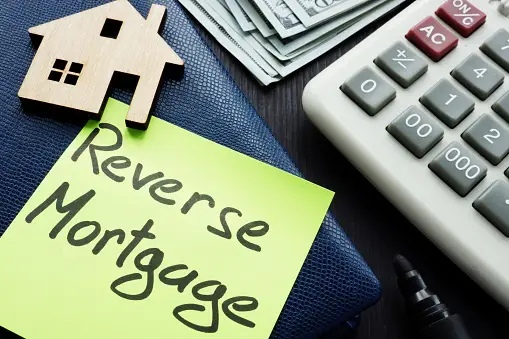Deducting interest on a reverse mortgage from your taxes can be a complex topic, as it involves understanding the intersection of mortgage products and tax regulations. Reverse mortgages are financial products designed for homeowners aged 62 and older, allowing them to access the equity in their homes as a lump sum, fixed monthly payment, or line of credit. Unlike traditional mortgages, where the borrower makes monthly payments to the lender, with a reverse mortgage, the lender makes payments to the borrower. The interest on these mortgages accumulates over time and is not paid out of pocket but is added to the loan balance. This interest can potentially be deductible on your taxes, but there are specific conditions and considerations to be aware of.
Qualifying for Interest Deduction
The Internal Revenue Service (IRS) sets forth guidelines that determine whether or not you can deduct the interest on your reverse mortgage. The key to understanding the deductibility of reverse mortgage interest lies in how the loan and the interest accrued are used.
- Interest Deductibility: For a traditional mortgage, homeowners can deduct interest if the mortgage is used to buy, build, or substantially improve the taxpayer’s home that secures the loan. With a reverse mortgage, the interest deduction is not as straightforward. The IRS allows the deduction of mortgage interest if the loan is secured by a qualified home (your primary residence or second home) and meets other requirements.
- Accrual of Interest: Interest on a reverse mortgage accrues over the life of the loan but is not traditionally paid on a monthly basis. Instead, it compounds, adding to the loan balance over time. This leads to a key difference in deduction timing.
- Deduction Timing: The interest on a reverse mortgage is typically deductible in the year it is paid. Since reverse mortgage interest is not paid out of pocket but rather accumulates, you cannot generally deduct the interest each year as you would with a traditional mortgage. The interest becomes deductible when it is actually paid, which usually occurs when the loan is paid off. This can happen when the homeowner sells the home, moves out, or passes away, and the home is sold to repay the loan.
Specific Situations for Deductibility
- Loan Repayment: If you or your estate repays the reverse mortgage (either partially or in full) during your lifetime (for instance, if you sell the home), the interest paid at that time may be deductible.
- Use of Proceeds: How you use the proceeds from your reverse mortgage can also impact the deductibility of the interest. If you use the proceeds for purposes that do not qualify (such as day-to-day living expenses), then the interest related to that portion of the loan may not be deductible.
- Home Equity Debt Limitation: The IRS has limits on the amount of debt eligible for the mortgage interest deduction. For reverse mortgages, this limit can affect the amount of interest you’re able to deduct, depending on the loan’s size and how you use the proceeds.
Important Considerations
- Consult a Tax Professional: Given the complexities of tax laws and the specific conditions required for the deduction of reverse mortgage interest, it is advisable to consult with a tax professional. They can provide guidance tailored to your individual financial situation.
- IRS Publications and Updates: Tax laws and regulations can change, so it’s crucial to stay informed about any updates or changes that might affect your ability to deduct reverse mortgage interest. IRS Publication 936, “Home Mortgage Interest Deduction,” is a valuable resource for homeowners.
- Financial Planning: Beyond tax considerations, deciding on a reverse mortgage requires careful financial planning. Consider how the loan will affect your estate, your eligibility for government benefits, and your overall financial plan.
In summary, while you can potentially deduct the interest on a reverse mortgage from your taxes, the ability to do so is contingent on several factors, including how and when the loan interest is paid, how you use the loan proceeds, and adhering to IRS guidelines. Consulting with a tax professional is essential to navigate these complexities and ensure that you are maximizing your tax benefits within the bounds of the law.
“Also, read our article on How to Transfer Ownership of a House with a Mortgage for comprehensive guidance. Learn the steps involved in transferring property ownership while navigating existing mortgage obligations. Gain insights into legal considerations, financial implications, and expert tips for a smooth transition. Explore this essential resource today!”

